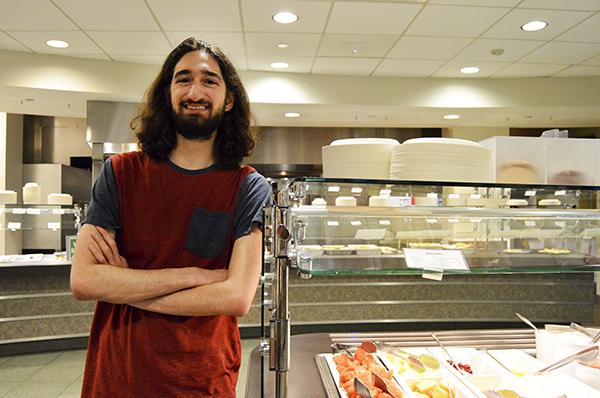Students who eat in Pelham Commons will have access to kosher meals again.
The change comes after two Student Association senators met with dining officials and passed a resolution through the SA last Monday, asking for the options to offered at the Mount Vernon Campus eatery. University spokesman Kurtis Hiatt said in an email that Pelham Commons has offered kosher meals in the past, but had removed them from the menu due to “low to nonexistent” consumption.
Hiatt said the kosher selections offered this semester will include sandwiches, salads, entrees and sides.
Managing Director of Campus Support Services Nancy Haaga and J Street General Manager Bernadette Thomas said in Monday’s meeting that the demand level for new options will be a major factor in whether they will continue after the trial period, SA Sen. Charles Spirtos, ESIA-U, said.
Spirtos added that the change will bring Pelham Commons in line with J Street, which sells kosher food at its Simply To Go Store.
“Students were at a disadvantage by residing there,” Spirtos said.

The University is working with Sodexo to also source halal products, food options that follow dietary regulations for Muslims, Hiatt said.
Spirtos said a Muslim student approached him in May, saying the lack of halal meals served in Pelham Commons had made it difficult for her to eat there. He said he spoke with University officials over the summer about what accommodations could be made for students who need meals that follow religious dietary guidelines.
Halal meals must follow Sharia law, which forbids the consumption of pig and animals that have been strangled or gored to death.
SA Sen. Nicole Martin, SPHHS-U, who co-sponsored the SA resolution in support of the food options, said the new dining initiative is about making students of all backgrounds feel comfortable at GW. Sen. Erika Feinman, CCAS-U, also sponsored the resolution.
“At the end of the day, we’re talking about diet, which is a huge part of culture. The University has the responsibility to provide students what they need to be able to observe their cultural practices and live the lifestyles they need to live,” she said.







